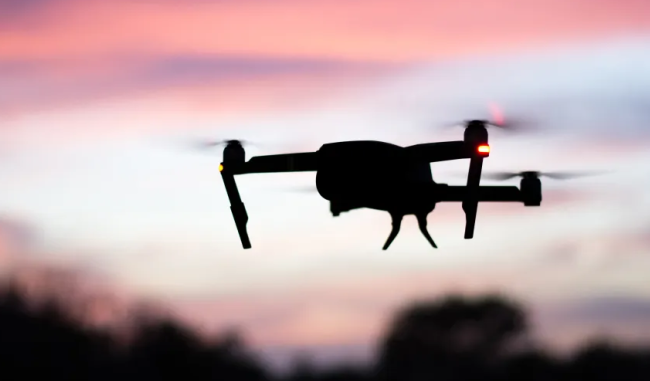
He explained that some of the drones being deployed by the insurgents are similar to the ones deployed in countries like Israel and Ukraine.
The Operation Hadin Kai of the Nigerian Army has expressed concerns over the growing use of “armed drones” by the Boko Haram terrorists in the North East, warning that such tactics are difficult to detect using conventional radar systems.
Major General Abdulsalam Abubakar, Theatre Commander of Operation HADIN KAI (OPHK), disclosed this development on Tuesday during a briefing in Maiduguri, Borno State.
He explained that some of the drones being deployed by the insurgents are similar to the ones deployed in countries like Israel and Ukraine.
General Abubakar called on the remaining insurgents to surrender and emulate their counterparts who have laid down their arms and are being treated humanely.
He warned that those who refuse to surrender face certain elimination.
“The terrorists have changed tactics, resorting to multi-pronged attacks on isolated and vulnerable deployments. They use these attacks as propaganda. This is why we are reviewing our deployments to counter their evolving strategies,” he said.
Despite the new challenges, Abubakar said that Nigerian troops remain highly motivated and resilient.
He credited improved welfare packages instituted by the military hierarchy for boosting troop morale.
“This shows the seriousness with which the government is tackling this conflict. We are confident that in due time, we will achieve complete victory over terrorism,” he added.
The general also noted significant progress in the fight against insurgency, stating that terrorist activities have been greatly degraded and normalcy has largely returned to the North East region compared to five or ten years ago.
Speaking on recent developments, the Theatre Commander emphasised that warfare involves multiple campaigns—each consisting of coordinated operations aimed at achieving strategic objectives.
“In war, you win some and lose some,” he said.
“What matters most is the overall balance of success.”
“In just the past week, over 20 terrorists have been neutralised and several weapons recovered. Operations are ongoing on multiple fronts.”
He noted significant progress in restoring normalcy to conflict-affected communities.
“Most citizens have returned to their communities, and socioeconomic activities have resumed. Malam Fatori and Kukawa stand out as recent success stories, with nearly 20,000 internally displaced persons returning to their ancestral homes.”
However, he linked the resurgence of threats in Nigeria to worsening security in the wider Sahel region.
“Barracks in neighbouring countries are being overrun, and weapons looted. These arms often find their way into Nigeria through our vast and porous borders, fueling the conflict here.”
“Two years ago, we were on the verge of declaring the conflict over,” he said. “But the deterioration in Sahel states has had a direct impact on us. While we have made progress, the terrorists have also adapted—thanks in part to the ease with which they access new technology.”
He cited the emergence of armed drones as a growing threat.
“Since November last year, we’ve seen terrorists deploying weaponised drones—similar to those used in Israel and Ukraine. These drones are hard to detect with conventional radar.”
In response, the military has been reorganising and reassessing its strategy. “We’ve been re-strategising over the past two months.
The Chief of Army Staff visited last week, and major changes have been implemented. I assumed command just three weeks ago as part of those changes.”
“Terrorists now launch multi-pronged attacks on isolated and vulnerable positions, using such incidents as propaganda. That’s why we are reviewing and adjusting our deployments.”
“Just yesterday, there were coordinated attacks in Rann, Dikwa, and Gajiram. All were repelled, except Rann, where the attackers breached our defenses to some extent, resulting in the loss of four personnel.”
Despite the setback, he reaffirmed the military’s commitment.
“Let me assure you—our resolve remains firm. We will defeat terrorism and restore peace to this region as swiftly as possible. But we need the full support of the nation.”
He urged Nigerians to understand the scale and complexity of the conflict.
“Our theatre of operations spans over 150,000 square kilometers—larger than several countries combined. Take the Timbuktu Triangle alone: it covers over 11,000 square kilometers, which is bigger than Rivers and Osun states, and even larger than countries like Jamaica, Kosovo, and The Gambia.”
“In asymmetric warfare, as Sun Tzu said, you must separate the fish from the water. Security is a collective responsibility. Every Nigerian must play a role in identifying and isolating criminal elements.”
As an example of local support, he cited a recent interception. “Last week, our troops seized 13,000 litres of PMS being smuggled to terrorist enclaves at night. That amount of fuel could sustain their operations for a year.”
However, he urged communities to collaborate with the military.
“The fight against terrorism cannot be won by the armed forces alone. We need the cooperation and vigilance of every citizen to overcome this challenge.”
Leave a Reply